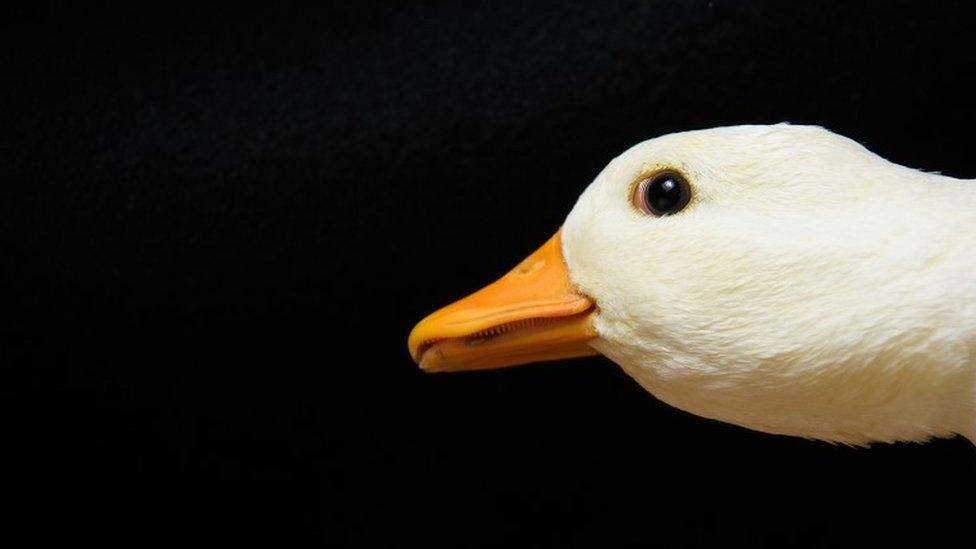Wild falcon tests positive for bird flu in Dumfries and Galloway
- Published
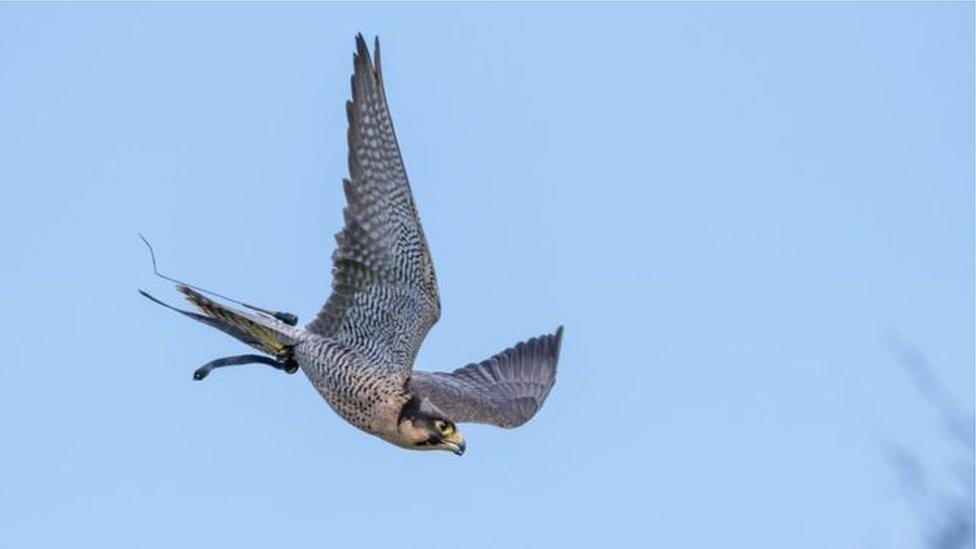
A peregrine falcon tested positive for H5N8 avian influenza
A peregrine falcon found in Dumfries and Galloway has tested positive for bird flu.
Scotland's chief veterinary officer said the discovery confirmed that H5N8 avian influenza was present in the country's wild bird population.
Sheila Voas urged the public to be vigilant for signs of disease in both wild and domestic birds.
Two more cases of birds infected with avian influenza have also been detected in England.
The H5N8 strain has been spreading rapidly in Europe, though it is considered far less risky than the H5N1 outbreak in 2006, and is believed to pose a low risk to humans.
Ms Voas said: "This underlines the crucial importance of bird keepers and members of the public remaining vigilant for signs of disease in domestic or wild birds.
"Any dead wild swans, geese, ducks or gulls, falcons or other birds of prey or five or more dead wild birds of other species in the same location, should be reported to the Defra helpline"
The Scottish government said there was strong evidence from Europe that the disease was getting into housed poultry.
The heavy rainfall brought by Storm Barbara could heighten the risk of contaminated water entering poultry houses, it added.
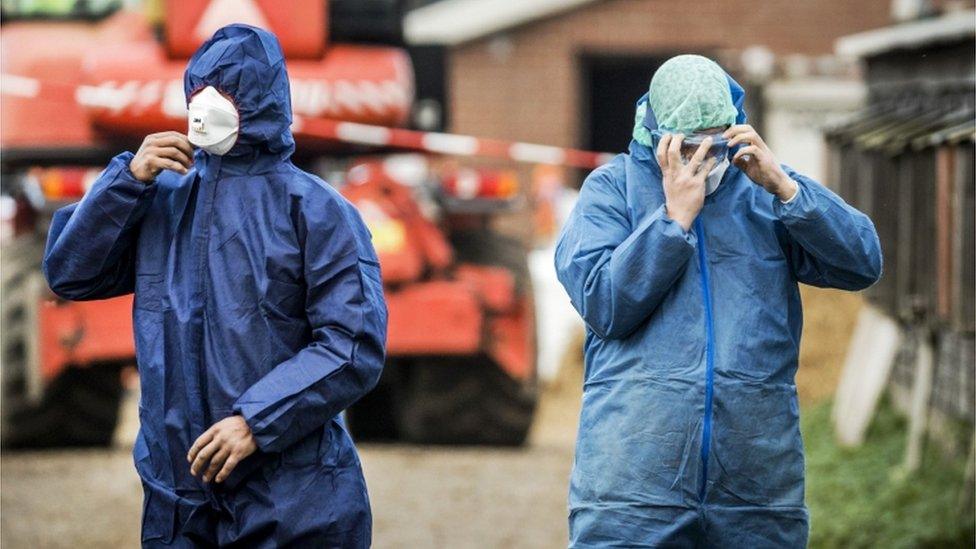
Strict regulations have been put in place in much of Europe, including the Netherlands
Producers have already been ordered to house birds or ensure they are kept separate from wild birds.
Rural Economy Secretary Fergus Ewing said: "With the recent disease confirmations in both England and Wales, it is not unexpected for avian influenza to be found in a wild bird here in Scotland.
"We have already made clear that all bird keepers - whether major businesses or small keepers with just a few birds - must ensure that their bio security is up to scratch and prevent any contact between their birds and wild birds."
A further two cases of avian influenza have been detected in wild wigeons in Somerset and Leicestershire.
NFU Scotland said it was a "very worrying" time for poultry keepers.
An NFU spokesman said: "Whether your poultry flock is large or small, we urge you to ensure your bio-security measures to protect the health of your flock are as robust as possible.
"Given the spread of the disease in wild birds, flock owners must continue to comply with the Avian Influenza Prevention Zone, put in place on 6 December, which requires that all poultry and captive birds in Scotland be kept indoors, or otherwise kept separate from wild birds."
The spokesman added that consumers should have no concerns about eating eggs or poultry meat.
The Defra helpline number is 03459 335577 and it can also be contacted by email, external.
- Published16 December 2016
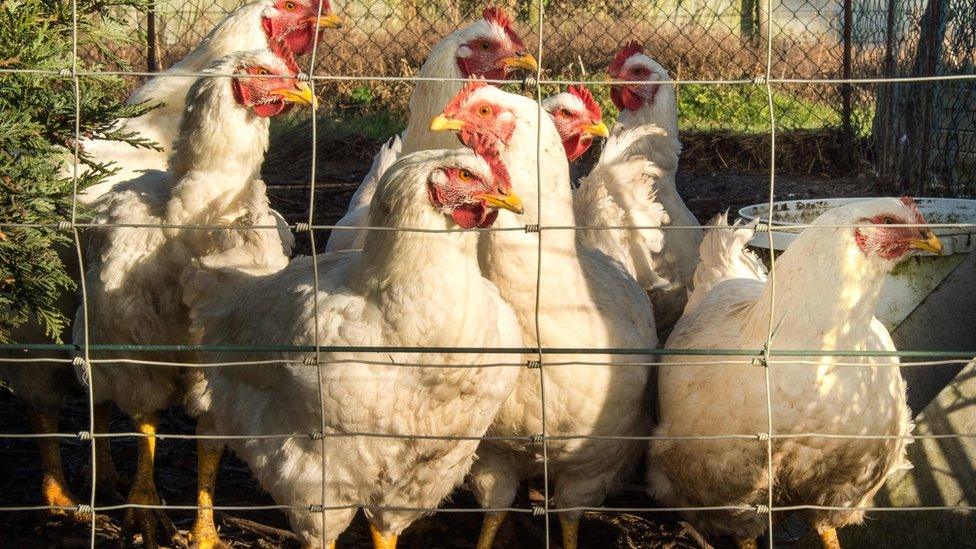
- Published7 December 2016

- Published7 December 2016
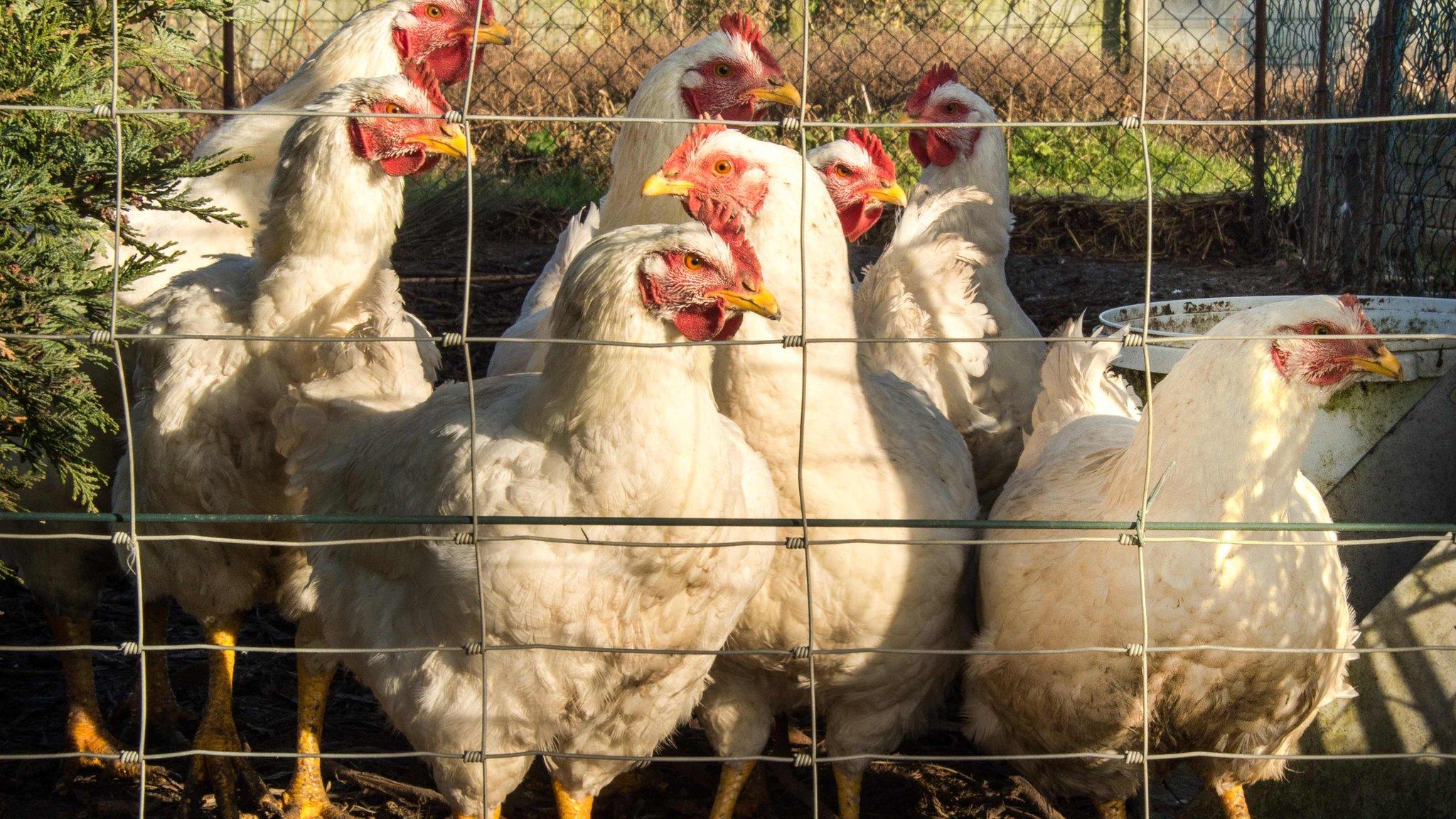
- Published27 November 2016
